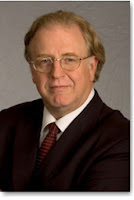In a nation beset for more than 50 years by racism, divided by war, and brimming with confrontation, anger and violence — there was the voice of Julian Bond: soft spoken and serious, reasoned but no less passionate, and always, always, challenging.
Bond, 75, was a renowned civil rights activist, vocal anti-Vietnam War protester, a former board chairman of the NAACP and a former Georgia legislator and university professor. He died Aug. 15 after a brief illness.
A lifelong champion of core freedoms and equality, he once said, “The First Amendment still represents the key to positive social change in the United States. … Without those rights of free speech and the right to protest, the [civil rights] movement would not have accomplished what it did.”
President Obama said in a statement: “Julian Bond helped change this country for the better. And what better way to be remembered than that.”
The Nashville, Tenn., native was a student at Morehouse College in Atlanta when he was among the organizers of the Student Non-Violent Coordinating Committee (SNCC) — the start of a lifetime’s work on behalf of equal treatment and human rights.
One of eight African Americans elected in 1965 to the George State Assembly, where he would serve for 20 years, Bond was not seated until 1967, following a U.S. Supreme Court decision. In a unanimous opinion, the Court said fellow lawmakers had violated Bond’s free-speech rights when some members labeled him “disloyal,” and the legislature voted to turn him away over his public stance against U.S. military involvement in Vietnam.
In an interview in 2001 with the Newseum Institute’s David L. Hudson Jr., Bond said, “The First Amendment must protect unpopular speakers. You have to remember that my views and the civil rights movement were unpopular views. We must protect the unpopular views or we cannot protect the popular ones.”
Hudson wrote, “Even though the First Amendment is often judged by some of the company it keeps, such as white supremacists or pornographers, Bond said it ‘still does’ offer the key to social progress.” ‘Any time someone carries a picket sign in front of the White House, that is the First Amendment in action,’ Bond said. ‘Every time someone says (then-president) George Bush is an idiot, or Julian Bond is an idiot, that’s the First Amendment in action.’”
In the Supreme Court case, Georgia officials argued that the state could hold a public official to a higher standard of loyalty than private citizens. The Supreme Court disagreed, with Chief Justice Earl Warren writing, “The manifest function of the First Amendment in a representative government requires that legislators be given the widest latitude to express their views,” saying such an approach gave “freedom of expression the breathing space it needs to survive.”
Bond’s life was not without personal controversy. A 1986 unsuccessful primary campaign for Congress was marked by bitter exchanges with another civil rights icon, Rep. John Lewis, who won and still holds the seat. During that election contest, claims surfaced that Bond had used cocaine, and he was investigated by federal officials but never charged. Bond and Lewis long ago reconciled.
In an Associated Press story about Bond’s death, former U.S. Ambassador Andrew Young said Bond’s legacy will be as a “lifetime struggler … he started when he was about 17, and he went to 75. And I don’t know a single time when he was not involved in some phase of the civil rights movement.” He also noted that “When everybody else was getting worked up, I could find in Julian a cool serious analysis of what was going on.”
In 1960, Bond helped organize a sit-in of college students at the Atlanta City Hall cafeteria — the first public example of the leadership and organizing abilities that others noted in a variety of news reports following his death. An early supporter of same-sex marriage, Bond continued involvement in public protest on a variety of causes, including a demonstration in front of the White House in 2013 on environmental issues.
But Bond’s life was as “a thinker as well as a doer,” said Charlayne Hunter-Gault, a journalist who met Bond when she was one of the first two black students to attend the University of Georgia. “His eloquence and sense of humor really helped sustain the young people in the civil rights movement,” she told The Associated Press.
Hunter-Gault said Bond’s life holds a lesson for modern-day social activists: “Everybody is not going to be out there in the street with their hands up or shouting. There’ve got to be people like Julian who participate and observe and combine those two things for action and change that make a difference.”
In drafting the First Amendment, the nation’s founders set out strong protection for those who would use its five freedoms to push for a better nation — in effect, challenging future generations to do so.
Among so many things, Julian Bond should be remembered for taking up that challenge for a generation and more.
About the author: Gene Policinski is chief operating officer of the Newseum Institute and senior vice president of the Institute’s First Amendment Center. He can be reached at gpolicinski[at]newseum.org. Follow him on Twitter: @genefac.
This article was published by the Newseum Institute.
Subscribe to:
Post Comments (Atom)



No comments:
Post a Comment